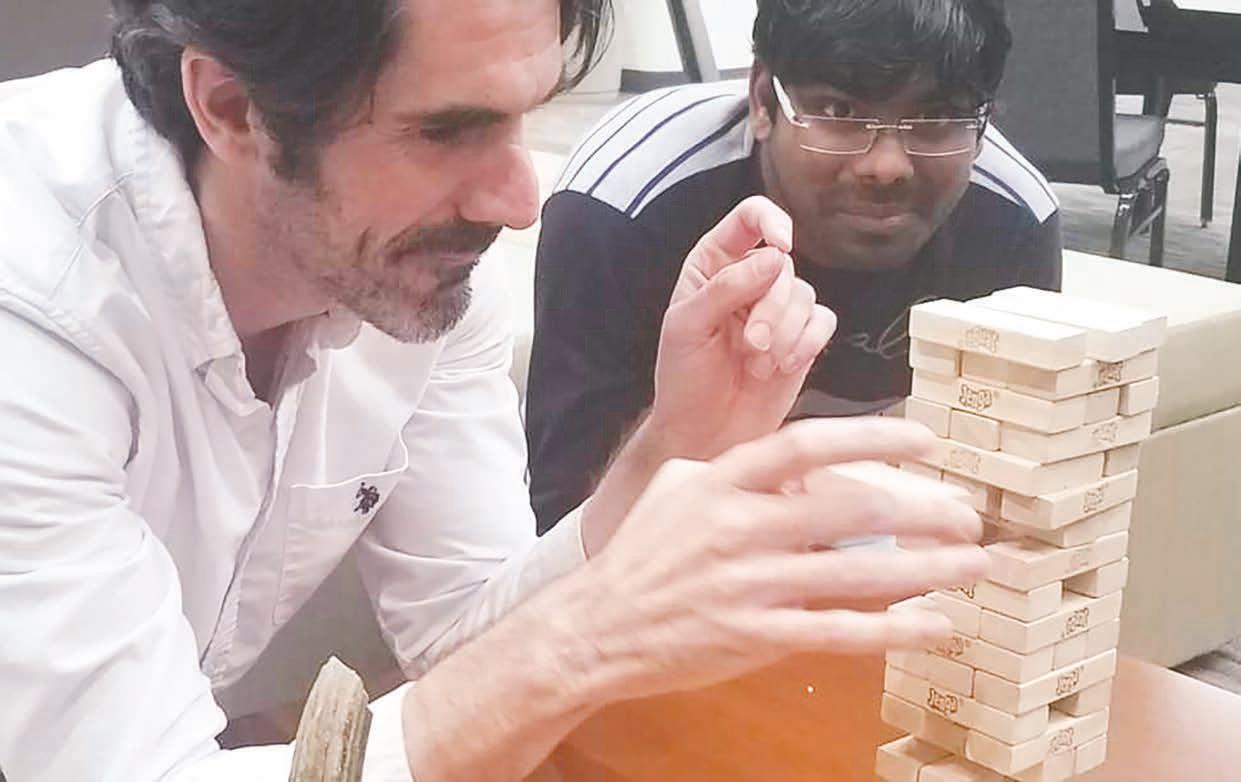
3 minute read
THE HORMEL INSTITUTE
from May June 2020
Post-Doc Power at The Hormel Institute
Post-doctoral work provides further knowledge to the world of science as well as the scientists
Advertisement
By The hormel InsTITuTe
If you visit The Hormel Institute, University of Minnesota, many of the scientists you see working hard in the labs are “post-docs.”
Post-Doc is short for post-doctoral researcher or fellow, and describes a scientist who has earned his or her Doctor of Philosophy (or Ph.D.) degree. With that degree comes a requirement for additional training in a focused area of research — a required part of the education, same as residency training is required for new doctors upon graduation from medical school. In the case of The Hormel Institute, post-docs are training in areas of cancer research.
The Hormel Institute is currently home to 60 post-docs, who work in this position an average of three to seven years — some longer. These post-docs eventually would like to lead their own lab and head their own research projects. Charles Day, Ph.D., is a post-doc in the Cellular Dynamics lab led by Dr. Edward “Ted” Hinchcliffe. Known internally as “Charlie,” Dr. Day recently organized The Hormel Institute Post-Doctoral Association in an effort to build community and culture among the young post docs.
Why? Post docs work extremely hard and has a lot of pressure to conduct projects. It is easy to get wrapped up in the demands of their research projects and not connect with postdocs in other labs. One goal of the Post-Doctoral Associationis to get post-docs to interact more and through building community and relationships, achieve making their work at The Hormel Institute both more enjoyable and productive - they hope to facilitate a greater flow of scientific ideas and knowledge.
A second goal of the Post-Doctoral Association is to provide career development training. The path from graduate student to heading an entire research section is a rigorous path and requires new skills such as grant writing, leadership and management. Dr. Day, in communicating with other post docs, observes there is little training in these important areas during graduate school. By providing seminars and learning from experts about these topics they hope to make it easier for HI post-docs to transition to the next stage of their careers.
Dr. Day lives in Rochester with his wife and two children and has worked for the last five years in the Cellular Dynamics lab, led by Dr. Ted Hinchcliffe. We asked Dr. Day some questions about his research and time at The Hormel Institute.
Dr. Ted Hinchcliffe
The Hormel Institute’s Dr. Charlie Day. Photo provided



Two post-docs playing Jenga during one of Post-Doctoral Association meetings at The Hormel Institute. Photos provided
Dr. Charlie Day works with Dr. Ted Hinchcliffe in the Cellular Dynamics lab.
What was the focus of you Ph.D. and why did you choose that research?
My PhD is from the Department of Molecular Physiology and Biophysics at Vanderbilt University. After completing my undergraduate degree I worked for a biotech in Boston for 4 years studying the impact of drugs on the cell membranes of the heart and eye. When I chose to go to graduate school I specifically sought out universities with strong programs in cell membrane research. Vanderbilt had multiple great labs working on membrane biology.
My dissertation dealt with how bacterial toxins – such as cholera and the toxins that cause food poisoning – enter the cell membranes when they infect humans.

What excites you about this field of research?
While working on my PhD we discovered a novel mechanism used by cells to uptake foreign items – toxins, nutrients, hormones etc – into the cell. This finding has a great impact on our understanding of how cells work.
The research also relied on very cutting-edge microscopy techniques and I really enjoyed the experience and the exposure to instrumentation that I had at Vanderbilt.
What do you appreciate about The Hormel Institute and working for Dr. Ted Hinchcliffe?
I really like the small size of The Hormel Institute. Being in a small institute rather than a huge campus makes getting










